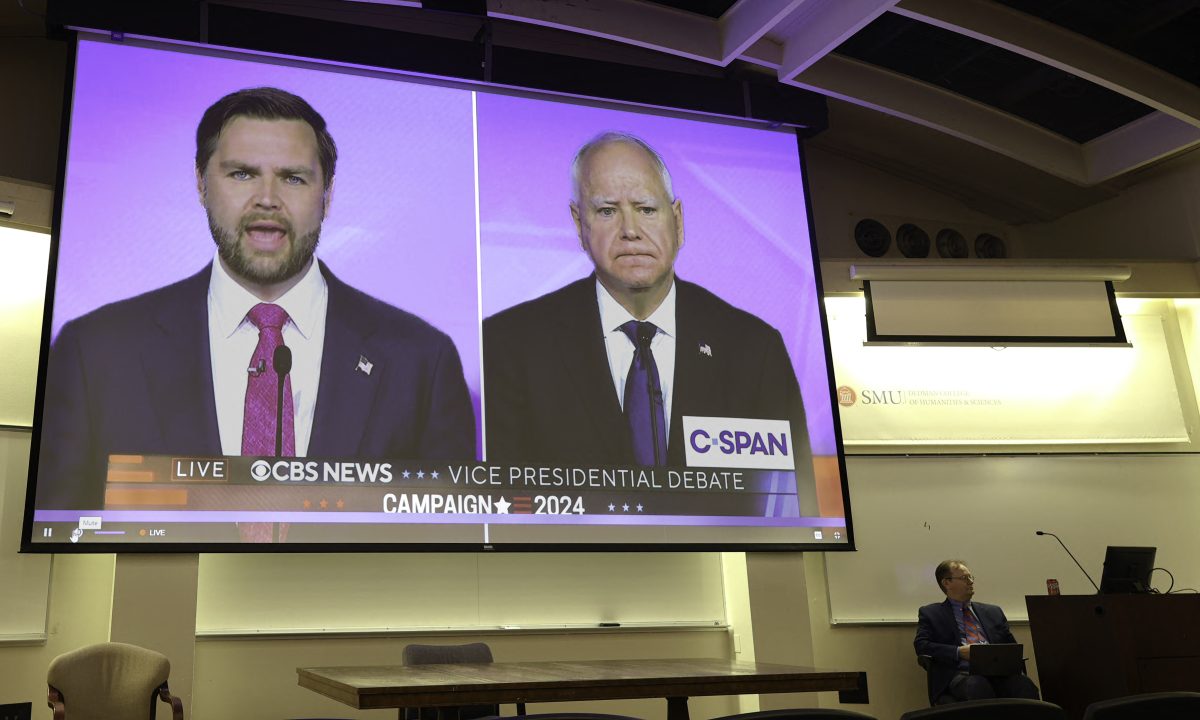This semester, Dedman College students may have noticed a vast increase in the use of BlackBoard Academic Suite for everything from homework to exams, and lately even teacher and course evaluations.
According to Information Technology Services, despite being a client of BlackBoard for years now, at the end of last semester, SMU decided to maximize BlackBoard’s usability, while at the same time trying to slash the cost of copying and printing thousands of sheets of paper.
One professor who advocates the paradigm shift is Dr. Andrew Johnson from SMU’s philosophy department.
“I think BlackBoard is a very handy tool,” said Dr. Johnson, who has already noticed a decrease in time and money spent on student handouts and materials, and likes the possibilities BlackBoard gives for his courses down the road saying, “In the future, I may do away with textbooks altogether and simply post my preferred readings on BlackBoard.”
Sociology professor Dr. Anthony Cortese understands the solutions BlackBoard provides benefit multiple parties.
“Through BlackBoard I’ve been able to make my courses 100 percent paperless,” Cortese said. “Everything is on BlackBoard: a syllabus, handouts, exams, links, reading materials, lecture notes, etc., which saves a lot of time and money, as Dedman College is currently financially strapped.”
He also points out that monitoring progress in the course is easier for the students also since they “always have access to all their grades and don’t need to ask the professor.”
More quizzes and exams taken online via BlackBoard allows professors to enter grades instantly as well as issuing tests with randomly assorted questions, thus ensuring the integrity of their students’ work.
Meadows Dean Jose Antonio Bowen made the most of BlackBoard’s applicability long before coming to SMU.
“I suppose someone might conclude that it cuts down on paper, but really it is all about increased learning,” Bowen said.
Dean Bowen also supplements in-class lectures in his jazz history course with his own podcasts via BlackBoard.
“If I can get more material to you, that’s just better,” he said.
Dean Bowen arrived to the Hilltop recently after teaching at Georgetown and Miami University, but was actually introduced to BlackBoard Academic Suite at his daughter’s elementary school nearly a decade ago and claims that “finding 90 to 100 percent of courses on BlackBoard has been common at other places for years.”
Michigan State University boasts a program akin to BlackBoard, called LON-CAPA, which actually allows even greater flexibility to students. LON-CAPA serves access to the student’s e-mail and provides other amenities such as formatted texts and images for the purposes of creating mathematical problems and equations.
BlackBoard received a tentative patent last July so it is likely they will soon have the resources to make up ground on smaller competition, if not buy them outright.
There is no reason for SMU to feel like the only ‘late BlackBoard bloomer.’ Research conducted just before the 2004 school year, from another comparable prestigious Southern university, Ole’ Miss, shows that about one third of their professors believed it would take too much time and effort to put all their coursework on BlackBoard.
Similarly, another 2004 survey showed that around 40 percent from the University of Texas Engineering Department felt BlackBoard was also too much of a pain in the neck. Though, a follow-up study from The University of Texas said that in time, the use of BlackBoard did grow to 82 percent across campus.
Junior Austin Miller admits, “I’d never even heard of BlackBoard until this semester.” Neither had real estate finance major Stewart Swain, but he did say, “BlackBoard keeps me on top of my game.”
The BlackBoard movement reflects on this generation’s reliance on “e-business” and “e-commerce” in the workplace. It naturally follows as a University’s responsibility to familiarize its student body with the technological tools they will inevitably come into contact with post graduation.
BlackBoard Academic Suite along with its cousin company and similar product, WebCT, are rapidly increasing their availability to the non-academia society as the corporate world can now conduct meetings, focus groups and boardroom discussions using the same online suites provided to schools. The product is also available in 59 countries worldwide and in twelve different languages. If the direction of the real world is heading the same way as BlackBoard’s stock currently is, then using this tool in the fast-paced careers of the 21st-century is a strong possibility.








